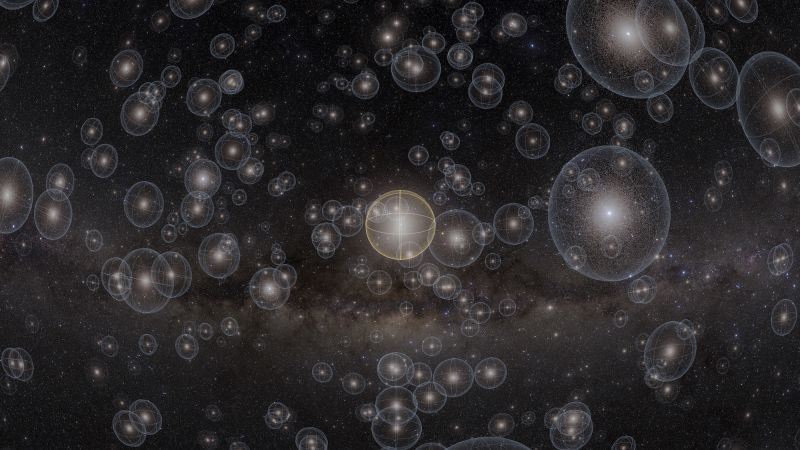'The Planets' comes into orbit in 'Out of This World' at Tilles Center
Just as Jupiter and Mars do every few years, music and science will align on July 13 for a multimedia performance of "The Planets" at Tilles Center in Brookville.
The event, titled "Out of This World," will feature the Massapequa Philharmonic performing composer Gustav Holst's masterwork against a backdrop of NASA imagery as well as commentary by Jackie Faherty, senior scientist and astrophysicist at the American Museum of Natural History and Hayden Planetarium. For tickets, go to tillescenter.org.
For self-proclaimed "science nerd" David Bernard, director of the Philharmonic, the show literally has universal appeal. "You’re going to have still images and video, which is an important component to this alongside the music," he said. "What also brings it alive is the commentary because Jackie is so awesome talking to people and imparting these concepts and really elevating the audience no matter what age they are."
Bernard said he and Faherty act as a "tag team" during the performance. "Jackie introduces people to the universe and then I will chime in with how that relates to the music, and then we play the music. We do that with each of these planets," he said.
Holst's composition balances the concepts of astronomy and astrology, with the latter delving into the personalities of the planets, Faherty adds. Venus, she explained, was thought of as pristine and gorgeous back in Holst's time, and now scientists realize it can be quite toxic due to its dense atmosphere of toxic gases.
"You can have both an appreciation of what the planets used to be with a newfound understanding of the planets today," she said. "So I really like that the music does present a certain kind of imagery and then I get to update people as to what it is that we know now."
Her favorite planet, though, is Jupiter, and images taken by the JunoCam during the Juno mission work their way into "Out of This World." "The imagery from Jupiter looks like a van Gogh painting," she said. "I give you the commentary ahead of time on how you should see the colors, what the colors mean, what the shapes might mean, so you can get excited over what you’re looking at. And then the music helps you feel it as you go along."
Faherty says he hopes that such moments will encourage audience members to appreciate the night sky with a whole new perspective. "They can leave our performance," she said, "wait for the sun to go down, look up and see those points of light in a totally different way because they will then have a soundtrack to go with it."
Daniel Bubbeo is an assistant entertainment editor and has been with Newsday since 2000. He edits Long Island arts and technology coverage.

:max_bytes(150000):strip_icc():focal(750x328:752x330)/natalie-portman-051925-ea72316ef6bf4983a6938f9dfcbcc772.jpg)





